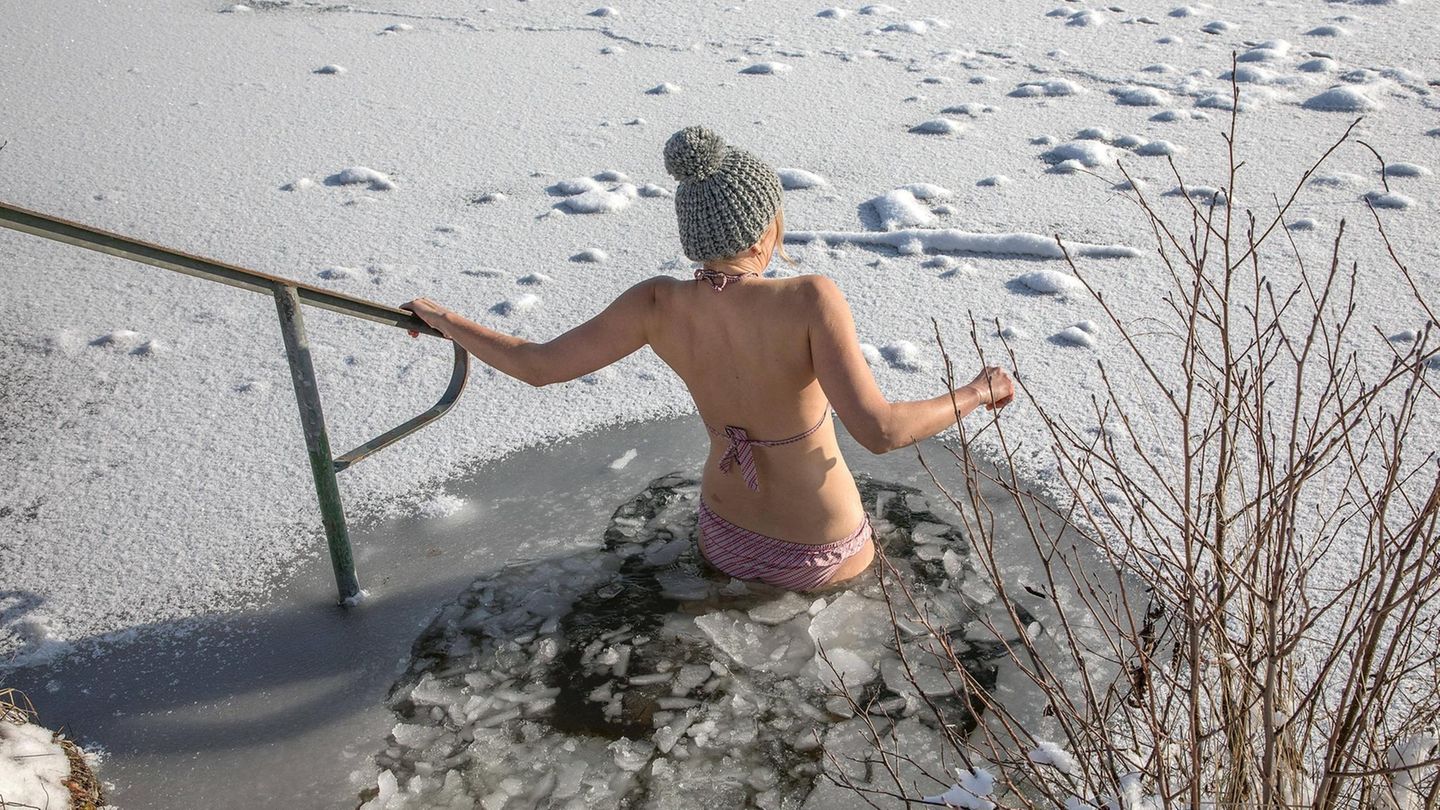Even in ancient times, scholars swore by the cold water, and at the World Cup Per Mertesacker wanted to “lie in the ice barrel for three days”. But is the ice-cold water actually good for us?
Even the ancient Germans are said to have dipped their newborns in cold water to harden them. It is said that Hippocrates fought suffering with cold water. Goethe is said to have chopped up the ice of the Ilm near Weimar to bathe in the river with friends.
After the 2014 World Cup round of 16, the later soccer world champion Per Mertesacker, annoyed by reporter questions about playful deficiencies, wanted to “lie in the ice bin for three days”. And in the East, winter bathing in GDR times was a tradition of the socialist brother states that was held up. From this time, there have been bathing groups in some towns to this day, they are called the seals, the penguins or the arctic foxes.
After ice swimming comes swimmer’s high
The cold stimulus triggered by immersion in frosty water is considered to be curative or preventive in many directions of naturopathy. If the methods are particularly rough, for example because the water is extremely cold, the vernacular also speaks of “horse cure”, according to Grimm’s dictionary “a daring cure with outrageous means”. Because the cold shock, for example after jumping through broken ice, ensures that a lot is going on in the body that has been so frightened: vessels in the outer tissue constrict in a flash, pulse and blood pressure rise. Muscles heat up trembling.
Then, according to the British Medical Journal, the “swimmer’s high” can occur – a pleasant flush of endorphins, dopamine and serotonin, just like runners know them. The cold bath is generally healthy and also a real kick.
However: People with heart defects, circulatory diseases, high blood pressure or diabetes expose themselves to serious stress if they carelessly splash around on the ice. Medical risk assessment is advisable! If you switch to swimming after a few swims, be aware that exercise in the water will cool you down even more. The same applies here: start slowly and increase carefully.
Source: Stern




